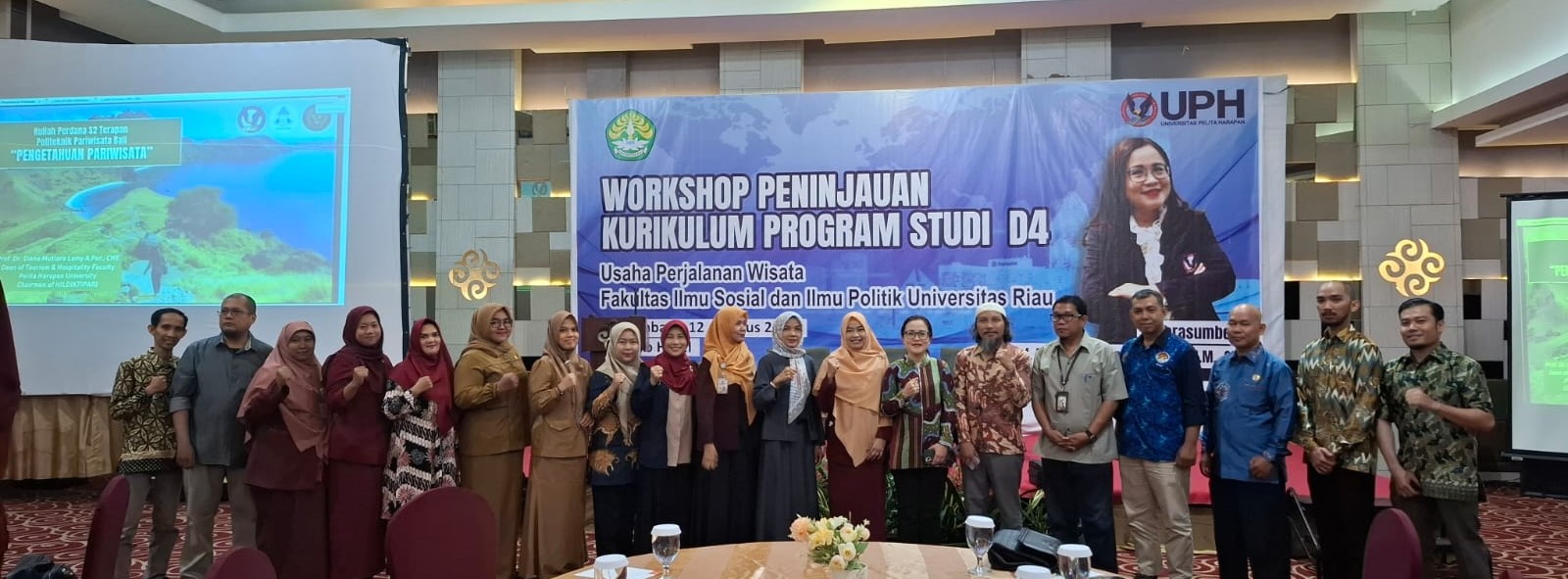Pekanbaru, August 12, 2024 – In an effort to enhance the quality of education in tourism, the Faculty of Social and Political Sciences (FISIP) at Universitas Riau (UNRI) has officially established a partnership with the Faculty of Hospitality and Tourism at Universitas Pelita Harapan (UPH). The collaboration was formalized through a signing ceremony by the Dean of FISIP UNRI, Dr. Meyzi Heriyanto, S.Sos., M.Si., and the Dean of the Faculty of Hospitality and Tourism UPH, Prof. Dr. Diena Mutiara Lemy, A.Par., M.M., CHE., attended by the Head of the Tourism Business Study Program (UPW), Dr. Mariaty Ibrahim, S.Sos., M.Si., the Secretary of the Department of Public Administration, Andry Sulistyani, S.S., M.Par, the Head of Public Relations/Chairperson of the FISIP PPID, Dr. Fajriani Ananda, S.Sos., M.Si., and all the faculty members of the UPW study program.
One of the main focuses of this collaboration is the development of the Tourism Business Study Program (UPW) curriculum at UNRI, involving tourism experts from UPH. The curriculum review workshop held alongside the signing ceremony is expected to result in a curriculum that is more aligned with the current needs of the tourism industry.
This collaboration includes academic activities such as student and faculty exchanges, as well as joint research.
Prof. Diena, who also serves as the Chairperson of the Central Executive Board of the Association of Indonesian Tourism Higher Education Institutions (Hildiktipari), delivered a presentation during the curriculum review workshop for the UPW Study Program. Her presence is expected to provide new insights for both UPW faculty and students regarding the latest developments in the tourism industry and how to incorporate them into the learning process.
Dr. Meyzi warmly welcomed this collaboration and expressed hope that the agreed-upon points would be implemented promptly.
Dr. Mariaty, as the Head of the UPW Study Program, stated in her remarks that the curriculum review is expected to provide the program with the foundation to carry out curriculum development and redesign. This is aimed at producing graduates with competencies that meet the demands of the business and industrial world, aligning with advancements in knowledge and skills, stakeholder expectations, government regulations, and striving to improve student learning outcomes.
